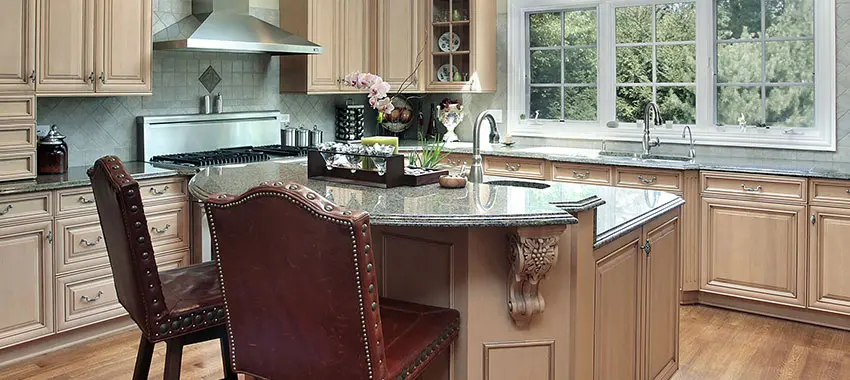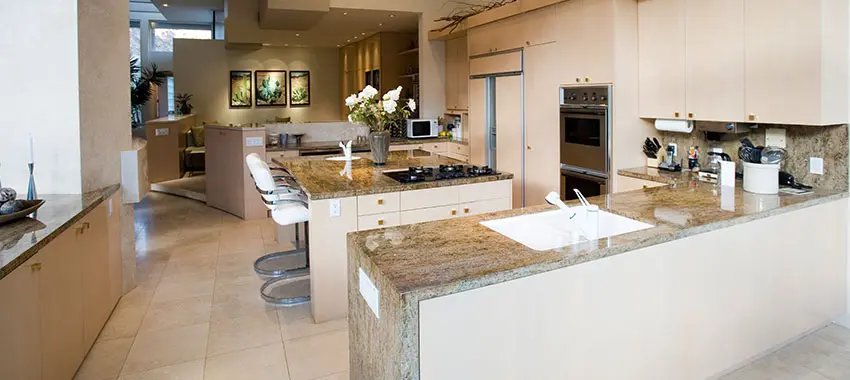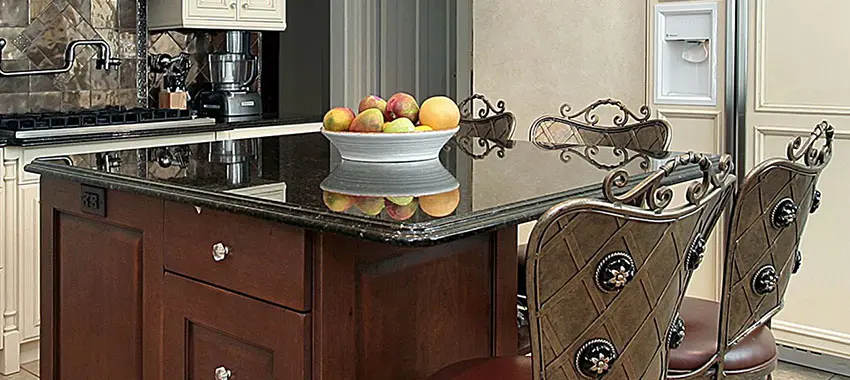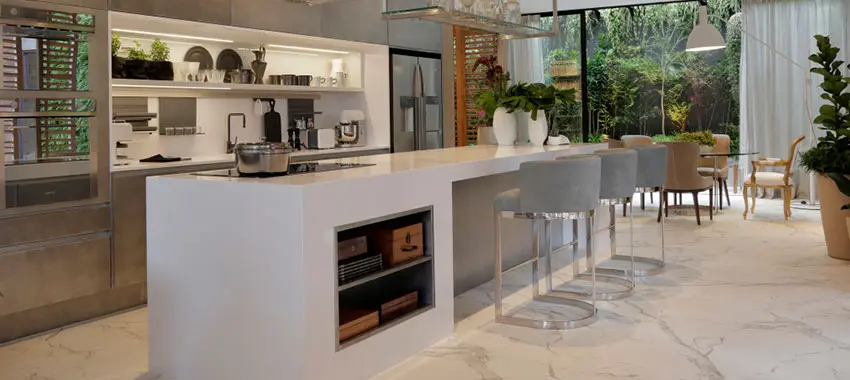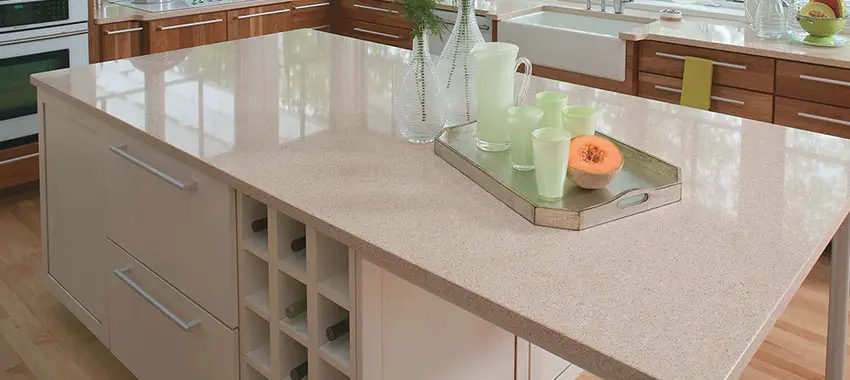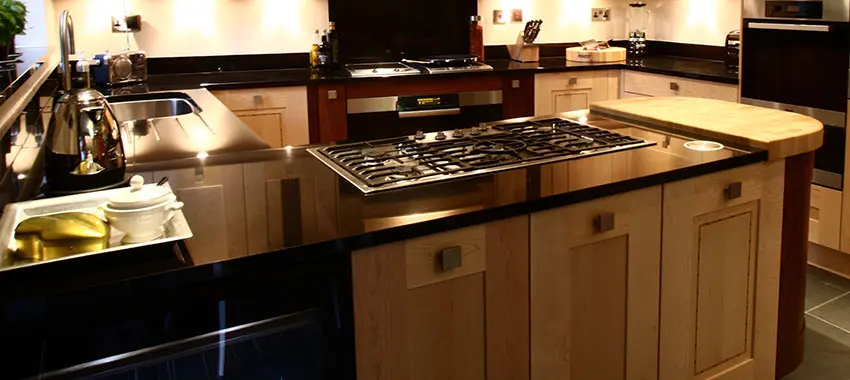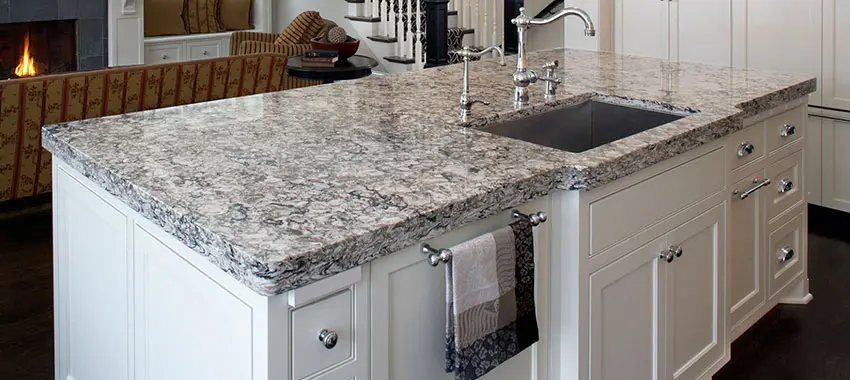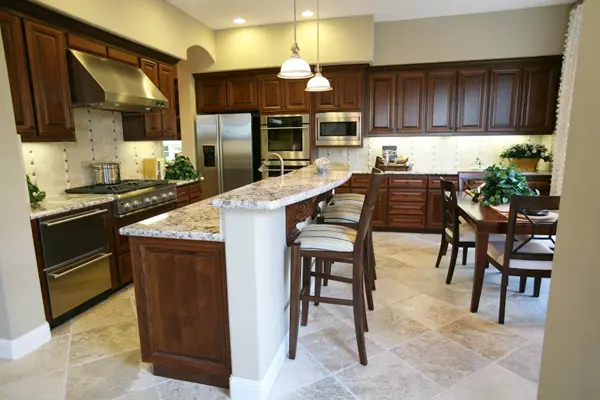Mar
How To Choose Between Dolomite And Granite Countertops
- 2025
- FlintStoneTops
When choosing countertop materials for your kitchen, you ought to select the most popular or durable choice. It’s only fair, right? If you’re looking for natural stones, then here is a comparison between dolomite and granite countertops, so you can decide which one is better for your kitchen.
Dolomite Vs. Granite Kitchen Countertops
Composition
The composition of the material you’re choosing is crucial. Even though you don’t know what sedimentary and metamorphic rocks are and how they contribute to the material’s longevity and performance, it’s still important to know what the stone is made of, so that you can better acquaint yourself with it.
Dolomite Countertops
Dolomite is a sedimentary rock. It is a porous natural rock made of limestone and lime mud. It has traces of magnesium in it as well, because of the groundwater it comes in contact with that ultimately makes the rock. It is a very good rock with properties of durability, strength, and longevity. It is also very hard, so keep that in mind when you’re choosing this rock for the fabrication of countertops.
Granite Countertops
Granite is an igneous rock. It is made deep inside the Earth under the influence of temperature and pressure. Rocks, sediments, and all of the other things melt into a puddle and mica gets mixed with it to form this beautiful rock that has veining like no other material. It is a material that will make you stare in awe. It is a very popular choice since the color is just so unique and not every stone is like granite out there.
Durability
The next factor to consider is the durability of the material. You’re getting a material for your kitchen countertops, so it needs to be strong. You don’t want to handle countertops with kid’s gloves, so getting a sturdy and strong material is the way to go.
Dolomite Countertops
Dolomite is a substantially hard rock. It is amazing when it comes to durability but the only downfall is that it can be brittle. Even though it is strong and hard, it can tend to break in the weirdest of places, so it’s not the best when it comes to impacts and throwing things on top of the surface.
Granite Countertops
Granite’s middle name is durability. This material is not just popular for its looks alone. It is highly durable and it can resist a lot that is thrown at it. Granite is a material that can withstand almost everything. It is a strong material that doesn’t mind weight or impacts at all and takes everything like a champ. So, if you want to get a material that will last you for a long time, then granite it is.
Maintenance
Maintenance is also another crucial thing to go over. When you’re choosing countertops, aside from the colors and design, maintaining them is something that should be on the top of your list. The last thing you need is to get a material that is very fragile and can’t be cleaned or taken care of normally. This will only waste your time and energy.
Dolomite Countertops
Dolomite, since it is made out of limestone, can’t be cleaned with acidic or harsh cleaners. It is also soft, so you don’t want to use anything that will leave scratches on it. If you want to clean dolomite countertops, then you can use a regular mixture of soap and water and use it to wipe the surfaces down. That’s more than enough for these slabs.
Granite Countertops
For maintaining granite countertops, you also don’t want to use too harsh and chemical-based cleaners on the surface. As much as it is strong and durable, nothing can ruin perfectly good granite countertops like acid and it will make small and big holes in the surface, which is something you don’t want. So, stick to the neutral stuff and you won’t regret it.
Price
Dolomite Countertops
Price is the department where dolomite takes the cake. It is much more affordable than granite or any other stone for that matter, considering that it is a natural stone. So, if you want to get your hands on a decent quality material with an affordable price tag, then dolomite is the way to go. Due to its budget-friendliness and appearance, it’s considered a good alternative to marble and granite.
Granite Countertops
Granite is expensive, but it adds value to your home in the long run, something that dolomite can’t do, so consider it as an investment. If you have the budget, then go for granite because it will pay you off in the end.
Stain Resistance
Stain resistance is also something that you need to consider especially when it’s a comparison between two natural stones. If there’s one bone to pick with natural stones, then it is the fact that they are porous. They are hard sponges that will suck in any and every kind of moisture available. This can be hard for a lot of people because being in the kitchen means being surrounded by endless moisture and water. So, you need to protect your countertops from something as harmless as water.
Sadly, both dolomite and granite can’t stand against stains. If they are not sealed, then they are not waterproof and if they’re not waterproof, then water will get sucked inside and there won’t be anything you can do, but watch the countertop surface get mottled with stains that are impossible to remove.
So, if you want to protect dolomite and granite countertops and make them look flawless for longer, then you need to add sealing to the maintenance list. Yes, it is more work, but it will save your countertops from looking unkempt.
Heat Resistance
In the kitchen, you’re working with intense temperatures and heat and you want to get a countertop material that won’t give away under the pressure of heat.
Dolomite Countertops
Dolomite is a sound material when it comes to heat resistance. Almost all natural rocks have great heat resistance since they’re made under the ground where the temperatures are astronomical, as compared to a meager kitchen stovetop. So, you can rest assured that dolomite will not be decorated with those hideous black stains that are impossible to remove and a pain to look at.
Granite Countertops
Granite is one of the best materials out there when it comes to heat resistance, even better than dolomite. Granite is the benchmark when you’re dealing with heat-resistant materials. If you want to get a good heat-resistant kitchen countertop, then the only competitor is granite.
It is an amazing material, across the board, and you don’t need to protect it from heat. But, sometimes, you can’t help but go the extra mile, so if you want to do that, then trivets or coasters are amazing. They will form a barrier between the countertop and the hot food you’re dealing with and your countertops will stay brand new for longer.
Conclusion
Dolomite and granite are very different from one another, but they’re amazing nonetheless. You should keep these things in mind before making any decision. If you want to take a look at some beautiful and durable natural stone slabs, contact granite companies Potomac.


